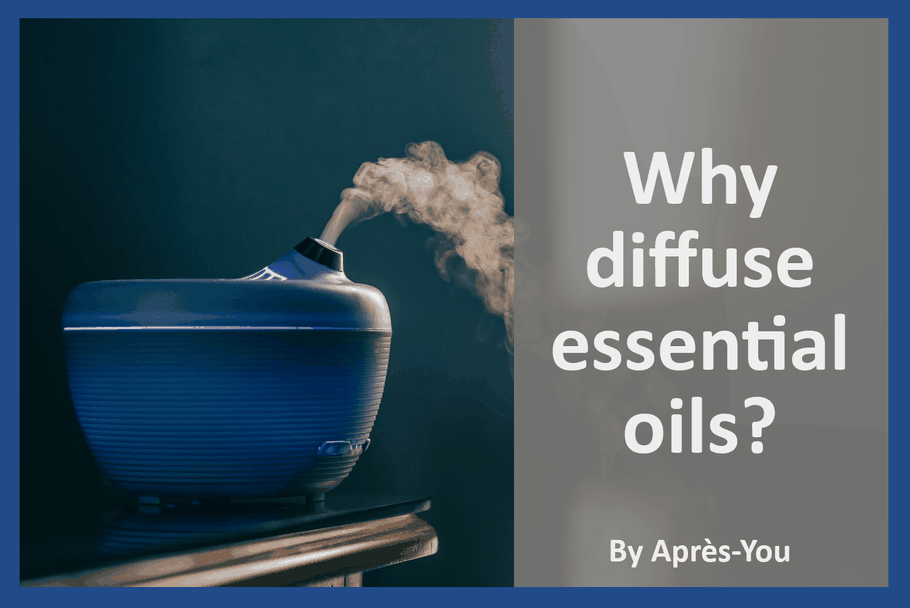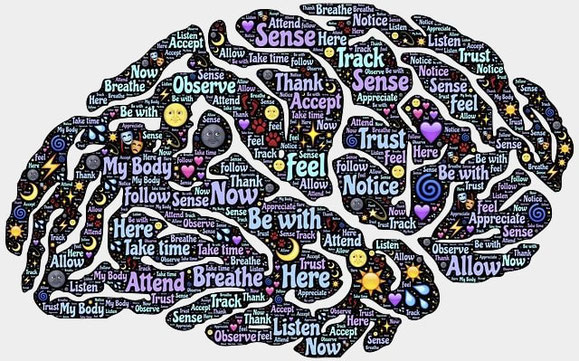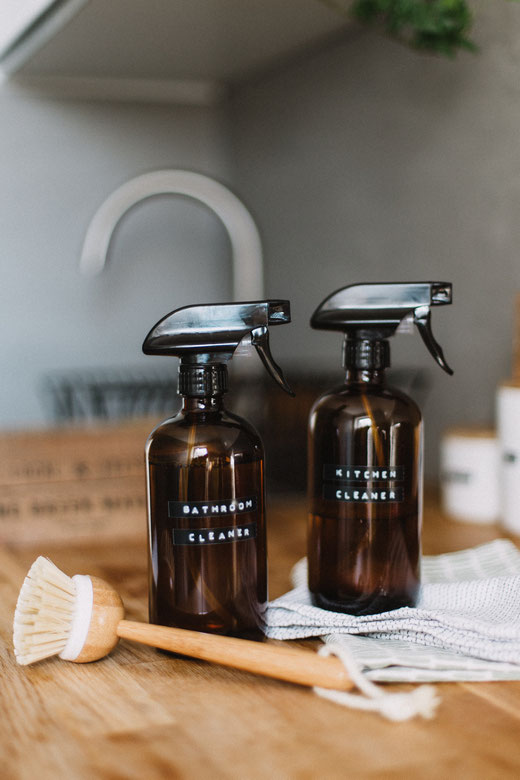Smell is one of our most evocative senses, and it is very closely linked to memory.
- Have you ever caught a whiff of freshly cut grass and been instantly transported to a lazy childhood summer afternoon?
- Have you ever been struck speechless passing someone in the street when their perfume/cologne was the same as that of a loved one?
- What about the smell of a new car or the particular odor of a brand-name store?
These three examples link different scents with emotions and memories. However, before one can appreciate any odor, that scent must first be diffused.

As this topic is actually quite a large and important one, it will be addressed in a series of upcoming articles which will delve into this subject in a bit more detail (i.e. which oils are best to diffuse and different solutions for diffusing oils as natural perfume). Watch this space!
Why diffuse essential oils?
To be sure that we are all starting from the same place, let's start by defining what exactly diffusion is.
Aroma diffusion refers to the practice of disseminating essential oils into a volume of air. There are a variety of different ways of achieving the same effect, such as simply by pouring some drops of essential oil into a container and allowing the aromatic molecules to fill a space. This method is effective for diffusion in smaller areas. To diffuse throughout a larger area, there are various devices that can aid in the diffusion of aromatic oils..
Now that we have clarified this point we can focus on the many benefits of aroma diffusion for our bodies, emotions, and homes.
You may know that certain aromas are relaxation and/or sleep aids, while others have an energizing and tonic effect. Smell and memory are the seats of emotion, so we should ensure that the things we spread in our hearts and homes bring joy or pleasure, so that all may reap the benefits from the diffusion of essential oils.
Structure of the article
1. What happens when you breathe essential oils?
2. How does the brain interpret smells?
3. Essential oils and emotions
4. The effects of diffusion in the house
- Conclusion
- Very Essential People
- Disclaimer
- Pictures
1. What happens when you breathe essential oils?
Diffusing essential oils within a living space will also enable the volatile molecules from the oil to enter our bodies when we breathe them in through the nose or mouth into the lungs.
This means that when we inhale aromatic molecules, they will be in contact with all the upper parts of the respiratory system before reaching the lungs and entering the circulatory system via gas exchange.
Video Tazeka Aromatherapy
It makes sense, especially if you consider that diffusing specific kinds of essential oils can be a tremendous relief for the respiratory system.
One of the molecules that are particularly interesting in this regard is Eucalyptol. Able to fight against some viruses, Eucalyptol is recognized for its positive effects on the respiratory system as it promotes expectoration and has mucolytic effects.
So, it may be beneficial to diffuse oils rich in this chemical compound when you want some help fighting a cold.
Blend idea
Although Ravintsara or Eucalyptus radiata are traditional cold and flu fighters, I often use the following blend my family and I are either on the edge of catching a cold or are already fighting the sniffles:
Cardamom and Rosemary contain 1.8 cineol. Lemon contains limonene, which not only gives off that well-known fresh and fruity perfume but also has antiseptic and antiviral properties (for more information about limonene, go here).
You can blend equal amounts of each of these EO, or you can adapt according to your own tastes.
2. How does the brain interpret smells?
As described above, the aromatic compounds in essential oil have physical effects inside our body. As you will see, these effects also extend to our brains as well. The brain’s system for odor recognition is highly complex.
Although we become very quickly aware when we have inhaled essential oils, the process which leads to that awareness is somewhat more complex than that rapid reaction would make it seem.
Aromatic molecules are captured by the cilia of the olfactory nerve. Next, some specific cells recognize the chemical structure of the molecules and transfer that information to certain places in our brains.
Next, our brains react to these signals by producing hormones, which in turn influence our behavior.

For example, serotonin is produced when you smell EO of Petitgrain or Bergamot This hormone helps the body to be more relaxed and calm. However, not all reactions to odors elicit the same kind of response.
- The revulsion we feel when we smell sour milk is instinctual protection against foodborne illness.
- The fear which spikes when we smell burned toast is a learned reaction to keep us safe from fire.
- The sentiment associated with the scent of cookies baking is closely linked to memories of home.
Sometimes, this association between memory and odor has become so internalized, that we are no longer conscious of it.
Although it remains so key to so many parts of our behavior (pheromones, anyone?), smell has a kind of paradoxical role in the modern world. On the one hand, our sense of smell develops very early. Amazingly, even before we are born, we begin to memorize odors.
For example, the smell of cinnamon may be associated with Christmastime, even if the exact spice can not be identified. This is due to the fact that the association between odors and reactions is activated each time a particular scent crosses our path.

Fun fact
Black bears can travel up to 30 km in pursuit of a source of food just by the smell alone.
In most cases, we are surrounded by sensors that do the job of sensing danger on our behalf. However, the problem remains: sensors can not interact with our emotions like odors can.
3. Essential oils and emotions
Two recent studies confirm this intimate connection between odors and emotions. Conducted on middle-aged men and women, both studies reached the same conclusion: that “the use of pleasant odors improved mood”.
‘Pleasant’ is the operative word in this instance. Without pleasure, the effect would not be the same. This is probably a truism as regards essential oils on the whole.
Pleasure should be a starting point for their use, in conjunction with the properties of the oils. In essence, if you like the smell of oil, using it will be more beneficial to your body than if you have to suffer through exposure to it.
La Belle et le Male - Jean-Paul Gauthier
This connection between aroma and our emotions is so strong that some specialists (e.g. olfactoterapeut Patty Canac) help people suffering from trauma to reconnect emotions and memories by means of smells like perfume, cleaning products, or everyday objects from the home.
4. The effects of diffusion in the house
It is true that houses have a smell to them. Essential oils can also play a role inside our houses. Evidence of this trend is not hard to find; a quick search on Youtube will show you a proliferation of tutorials for homemade products based on aromatic oils. The sheer number of such tutorials could even surprise you!
However, another element of the home involves taste just as much (or perhaps even more) than it does smell: cooking. While the smell of garlic or sauerkraut may be beguiling, sometimes, such strong scents can become overwhelming. Diffusion of some essential oils can help you to cover a strong smell.
Tips
An interesting EO to use for freshening the air is Lemon (Citrus lemon) because its fruity scent is natural in the kitchen.
You may find household sprays at your local grocery store which are touted as products that purify the air of your home. These contain dozens of essential oils and have also been the subjects of heavy criticism by a consumers' union.

These kinds of sprays often produce a very strong odor, so I would recommend having a very light hand if you opt to go this route.
Science
Unsure about the effect of essential oils on fighting bacteria development?
A study conducted in 2012 tested the efficacy of essential oils by diffusing them in a bio-clean room. Although this is not directly comparable to our households (as the space within the study was closed, rather than open to everyday activities), it did show that the essential oils hindered airborne bacteria development.
Conclusion
The beauty of essential oils is that they are the concentrated plant power contained within small bottles, which enable us to enjoy nature’s perfumes all year long. Within this article, we have discussed the positive effects and uses of diffusing essential oils on our bodies and brains, in tandem with our emotional state and home.
Diffusion is one of the easiest and most convenient ways to appreciate the benefits of essential oils as a natural perfume as well as powerful supports to our wellbeing.
Do not forget
Too much of a good thing is...too much.
- Oversaturation (too much diffusion) of essential oils in a room can quickly make the air unbreathable.
- Too much Lavender (which is normally a relaxant) will have the opposite effect.
- Everyone has different sensitivity levels in relation to smell. What may be pleasant for one, can be repellant to someone else
Be safe, be essential!
Very Essential People
You can be part of the Very Essential People group.
You will get informed of the new articles and you will get discounts on the Après-You e-shop, you just have to sign up.
It is free and without engagement.
Disclaimer
Après-You does not pretend and/or wants to replace any medical judgement or prescription. All the information within this post is intended to be informative! Please, always use essential oils carefully and with respect. In case of doubt, always ask a medical professional first.
Pictures
If you have any questions or remarks about the pictures and credits, feel free to send an email to info@apres-you.com.

